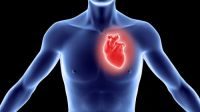Nonclinical studies suggest that ginger exerts many direct and indirect effects on high blood pressure, angina, arrhythmia, and heart rate
Effect on Blood Pressure
Nonclinical evidence, mainly from rat studies, has suggested that ginger exerts a great deal of direct and indirect influence on blood pressure and heart rate (reviewed by Afzal et al., 2001; Ali et al., 2007).

Ghayur and Gilani (2005) report that a crude extract of ginger induced a dose-dependent (0.3–3 mg/kg) fall in the arterial blood pressure of anesthetized rats.
In guinea pig paired atria, the crude ginger extract exhibited a cardio depressant activity on the rate and force of spontaneous contractions.
In rabbit thoracic aorta preparation, the crude ginger extract relaxed the phenylephrine-induced vascular contraction at a dose 10 times higher than that required against K-induced contraction. Ca++ channel-blocking activity was confirmed when the crude extract shifted the Ca++ dose–response curves to the right, similar to the effect of Verapamil that is used to treat hypertension (high blood pressure), angina (chest pain), and arrhythmia (certain heart rhythm disorders).
References:
- Afzal M, Al-Hadidi D, Menon M, Pesek J and Dhami M. (2001). Ginger: an ethno-medical, chemical and pharmacological review. Drug Metabol Drug Interact. 18(3-4): 159-90.
- Ali B, Blunden G, Tanira M and Nemmar A. (2008). Some phytochemical, pharmacological and toxicological properties of ginger (Zingiber officinale Roscoe): A review of recent research. Food and Chemical Toxicology. 46(2): 409-420.
- Ghayur M and Gilani A. (2005). Ginger lowers blood pressure through blockade of voltage-dependent calcium channels. J. Cardiovasc. Pharmacol. 45, 74–80.